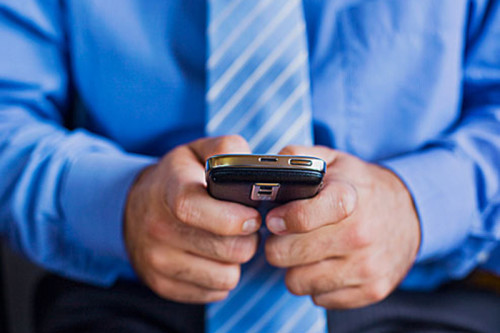Teens, Doctors, Texting and Medical Care
Most of my generation’s doctors almost never text, especially about patients and their medical problems; On the other hand, it seems that teens never quit texting. Is there a land somewhere in the middle where a use for texting lives with doctors and patient care? Yep!
Texting, fraught with issues for a doctor
If you somehow could get a doctor’s actual text messaging address and send a text, my guess is that it could very well be a month or so (if ever) that the doctor sees it. Do the same thing with a teen and he’ll interrupt a date to read it.
That’s not to say that either is wrong. Do the same thing in reverse and you get the same result.
I’ve looked on teens phones before and found them clueless that they even had a phone message system on their phone and close to 80 un-listened-to voicemails to prove they’ve never been there.
However, having reached the age where I need to visit doctor’s myself more often than I’d like, I plainly see that doctor’s these days seem to live by phone messages to office staff rather than direct communication, replete with their disclaimers and warnings that they’re NOT to be used “if this is an emergency”
Doctor’s Texting and Teen Medicine
Back last May, Reuters Health reported on a novel study where an official physician text line was set up (called MD2Me) and teen patients were given the number. It was only selected patients however and my guess is that it wasn’t a personal physicians text number.
Does Doctor Texting Work: A Research Study
Doctors/Researchers in the GI
Actually they didn’t state it like that. They placed the blame on the teen, believing it was because teens were either: reticent to make contact, didn’t have the life-skills to communicate or didn’t have the medical knowledge to know the significance of symptoms.
We practitioners of pediatric/adolescent medicine call that universal development stage: “transitioning to self-care,” and take steps to educate and assist teens through it into their adult lives. It’s what we do.
In fact, lots of “man”-hours have already been spent on developing whole systems of guidelines which help teens with various chronic illnesses do just that: transition. BUT, surprise, we’ve found that “writing” (the easy part) doesn’t even come close to solving the problem; it’s the “teaching” and “doing” (the hard part) which contains the reward.
What They Studied
The UCSD researchers recruited 81 adolescents (between 12 and 20 years old) from the three largest chronic disease specialty clinics – diabetes, cystic fibrosis and inflammatory bowel disease to participate. Those that “wanted to” participate were the study group, those that said “no” became the “control group” and got pamphlets by mail.
Their idea of a study involved barraging the participants with “two months of intensive Web-based and text-delivered education on general disease management addressing subjects like: how to refill prescriptions, how to monitor symptoms, how to obtain health insurance and how to talk to doctors and friends about chronic illnesses.”
We’ve got a REAL problem here! All of us doctors have eye-witness seats to how the health of our patients with chronic illnesses takes a nose dive once they turn 18 or go to college. What are we going to do about it?
What They Found
Pure and simple: “MD2ME participants showed significant improvement in all ‘targeted’ outcomes when tested eight months after the start of the study. They showed they were significantly more capable of managing their disease and reported feeling more confident in their ability to advocate for themselves.”
The MD2ME patients ‘initiated’ an average of two requests for ‘medical help’ over eight months compared with the control group who initiated none.
The authors note that “the tool did not have an effect on the severity of young people’s disease or on their quality of life – though those were not specific goals of the program.”
The REAL World
True pediatricians have dealt with “growing up” issues for years and years. We’ve not needed a federally funded program to actually do our job and discuss “transition to self-care” with our maturing patients.
The ‘medical interfacing’ issues which face children transitioning to independence are universal: how to call the doctor, when to call the doctor, how to get medication; it’s just that for children with chronic illnesses they are critical.
For years, in our first “growing up” exam and talk, I’ve asked parents to let/have their new teens begin calling the office for appointments. Both parents and kids are thrilled to do it! Only an infinitesimally small number of parents don’t want to help their children grow up.
And, contrary to what the docs in this study seem to believe, kids are NOT incapable of obtaining their own medical care because they haven’t had enough information pamphlets thrown at them! It’s because they haven’t developed an actual medical relationship with their doctor – something, I’m sorry to say, that very few physicians are trying to actually encourage/enable these days.
It’s clear that times have changed for communication. As terribly inadequate as it is for medical issues, and as much as physicians of my era loath the thing; none-the-less, texting is the preferred method of reaching out (to anybody) for teens of this age (at least initially) and smart doctors will acknowledge and support it in their practice.
BUT, WHAT THEY DON’T NEED IS YET ANOTHER AUTOMATED TRIAGE SYSTEM totally designed to prevent actual personal contact – even if it’s after hours.
[Pediatrics online May 19; http://pediatrics.aappublications.org/content/133/6/e1639 ]
Postscript: I found this unidentified pediatricians account of his “growing up talk” time with a young patient – good for a grin and apropos… don’t you think?
“I was recently talking with a teenage boy, one of five children. He has great parents who are very attentive to all the distractions related to cell phones and computer use and try to keep his screen use in moderation. During a routine exam, I asked about his cell phone usage, and if he had rules for using the phone. He answered that he didn’t have a phone … anymore. After further ‘polite probing,’ he admitted that his parents had taken his phone away because he’d been texting too much.
Many of my young patients seem to be texting all the time. Many parents have told me their child has unlimited texts and several have mentioned bills for their kids with as many as 9,000 texts per month. However, when I asked the boy how many texts he’d recorded in a month, he sheepishly told me 16,000!
I came home to my computer to try and figure out how many texts that was per week, day, hour. (The boy had told me his dad had run a spread sheet that he could provide if I wanted it!) Using a calculator, I figured that if he sent 16,000 texts per month, that’s 571 texts per day (assuming a 28-day month). If you figure that teens are in school for 8 hours a day (where I assume they’re not supposed to be texting) and they should sleep at least 8 hours, that leaves 8 hours for texting.
Now, I may be off a bit on my count (and who knows if this boy kept his cell phone turned off during school), but that would mean he was sending 71 texts per hour when not in school or asleep – or a whopping one text per minute when he was awake. Wow!
If you’re not discussing texting and limiting constant communication with your tweens and teens, I think you should be. This boy even admitted to me that he felt he had gone overboard with texting and really enjoyed talking to his friends. He told his mother during the course of our visit that when he did get the privilege of having a cell phone again, he thought he needed a model that only made phone calls.
‘Get me a really old-fashioned one that just rings, because I don’t want to be tempted to text!’ he said. Bright teen, don’t you think?”



